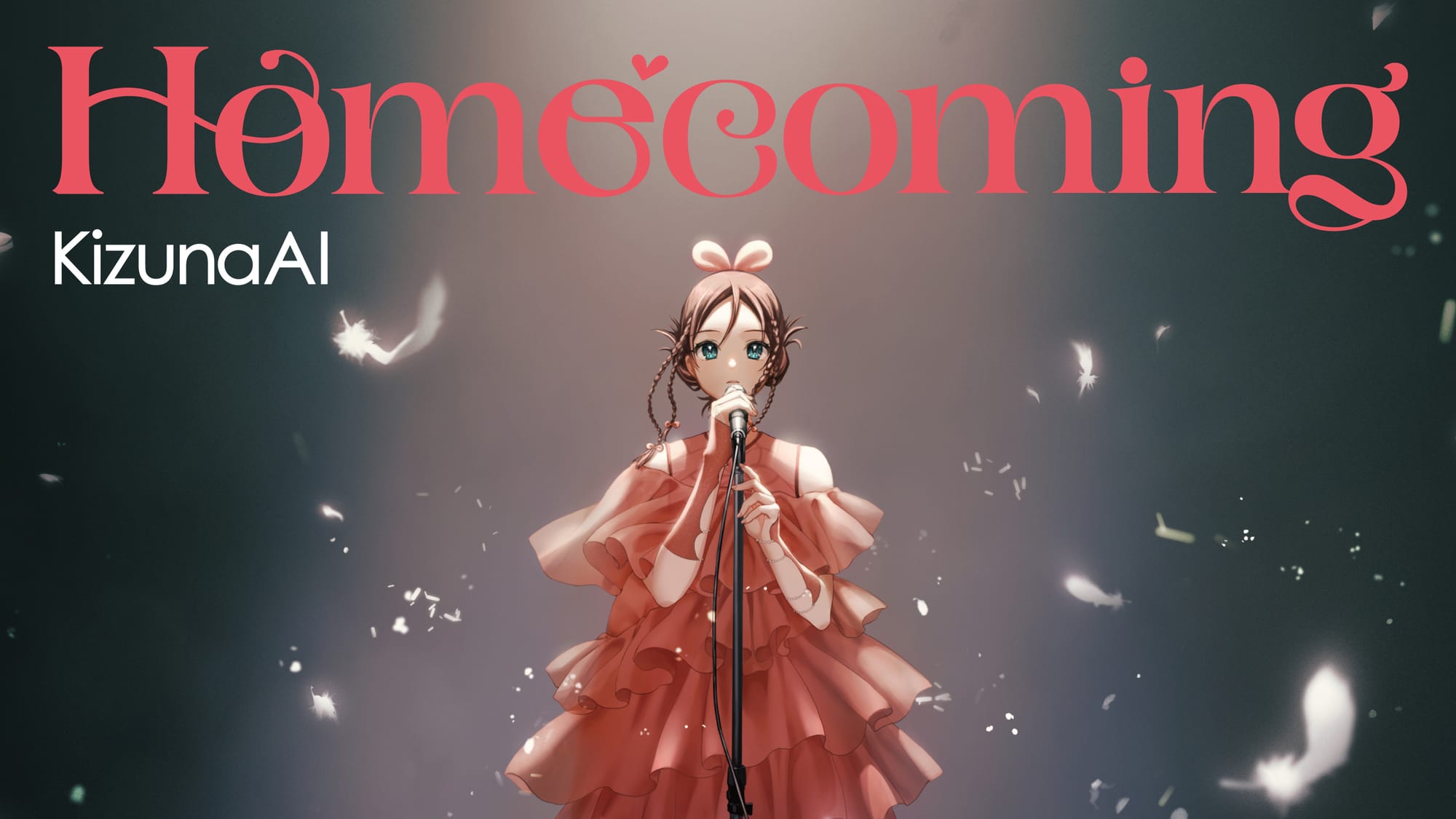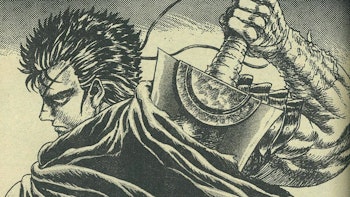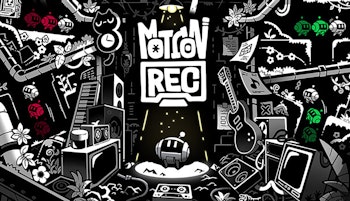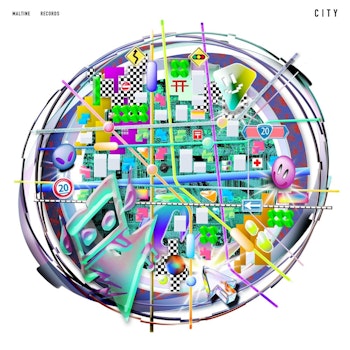
KizunaAI’s Homecoming is an often melancholy one. Nearly a decade ago she revolutionized the idea of “virtual YouTubing,” becoming a genuine 21st century digital pioneer thanks to her avatar-anchored presence online. She was the one who showed what was possible with this then-fledgling art — you could play video games, chat with viewers, do silly challenges or transform into a pop star working with decorated producers like Yasutaka Nakata.
By the time she went on hiatus in 2021, the industry she ushered in had become a behemoth. Multiple agencies devoted to VTubers in various regions appeared, morphing into something capable of causing geopolitical strife. AI set this all in motion, but at a certain point she became something closer to folklore, discussed like something passed on between generations.
Her return full-length after resuming activities earlier this year finds her in a reflective mood, the ecstatic future-bass-informed fireworks of her first forays into music replaced with songs featuring more space, downbeat turns and ennui-wrapped lyrics. It’s not a downer affair as AI brings plenty of moments of levity and outright fun.
Structurally, nothing has changed since AI went into sleep mode. A VTuber is, ultimately, closer to a traditional “talent” or idol in Japanese entertainment, which means she sings over songs created by a variety of producers. On Homecoming she explores eclectic sonic backdrops, ranging from sample-assisted pop-hops courtesy of Avec Avec (“Omajinai”) to a breezy funk gust provided by Satoko Shibata and Taku Inoue (“STYLE”).
It’s the emotions conveyed by her singing and the music, though, that have radically changed. Comeback single and Homecoming opener “Kamone” starts with an inhale, and from there AI sings about awakening and wanting to reconnect. Yet it’s not triumphant, turned lugubrious by references to loneliness and feeling left behind by the march of time. It’s made all the more wrenching by an understated arrangement giving her voice to deliver one of its most dynamic performances to date, AI going from hushed delivery to longing via by stretched-out syllables and eventually something resembling optimism — or just urgency — come the hook.
The best moments on Homecoming manage a similar sensation. “Mazaru” features a nervier rhythm courtesy of Narita Haneda and phritz, yet rather than short circuit it gives plenty of space for AI to ponder the distance between herself and the listener…while also questioning her own existence, in the album’s headiest moment.
She wrestles between the thrill of new attraction and the downers of the past on “Handsign,” with producer tofubeats constructing a beat resembling the thump of an anxious heart. Standout “White Balance” captures a similar nervousness via its garage-inspired skip courtesy ueil, again giving ample room for AI to celebrate the beauty of the humdrum and show off her vocal range.
Which doesn’t make Homecoming a drag whatsoever — despite a wider range of feelings expressed throughout, the music retains a dance-pop catchiness making even AI’s most existential moments grooveable. There’s instances of pure near-goofy joy on “Omajinai” and catharsis on “Go Around,” a disco slink featuring a guest spot from Daoko. She might have a lot on her mind, but AI has been away for a bit…she wants to get the energy up.
She does so, though, with an album highlighting a developed emotional sense and diverse set of sounds to express them over. It’s an important entry into the canon of VTuber music, a space whose best works have been madcap oddballery (Peanuts-kun, Houshou Marine) or bright-eyed J-pop eschewing idol trappings (Hoshimachi Suisei, Mito Tsukino). AI offers something more complex — she preceded everyone in this industry, and was away when it turned into an emerging entertainment juggernaut, giving her a different and often bittersweet one, but with enough adult wisdom to stay pointed forward. Fittingly for the field’s original innovator, she’s shown new possibilities for VTuber art with the genre’s most mature work to date.










